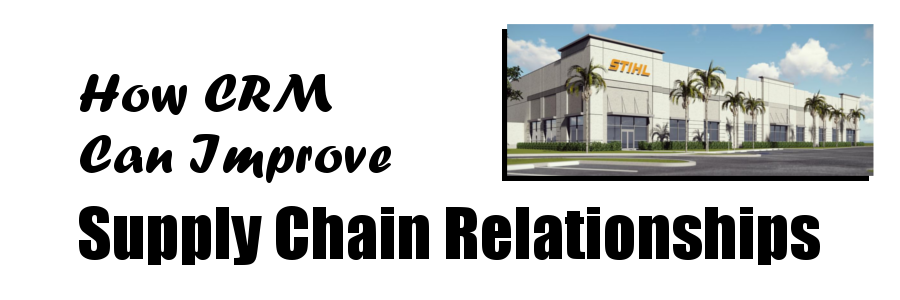How CRM Can Improve Supply Chain Relationships
by Black Ink Team

Sales software tools are useful for more than just storing customer information - they also can be used to streamline distribution and facilitate data transparency. For example, CRM grants sell-through visibility to OEMs and distributors (when it is populated with real-time product registration data) and enables them to respond quicker to fulfillment lapses. Suffice to stay, there’s more than meets the eye when it comes to CRM and other sales enablement tools.
CRM’s today are sophisticated platforms packed with useful features. Some have built-in visualization, which means you never have to export data to make easy-to-read charts and graphs. Furthermore, some CRM’s automatically provide industry-specific KPI’s which you would otherwise need to calculate by hand, and with some CRM’s you are even able to automate certain tasks such as notifying customers and compiling monthly reports.
When they are empowered by CRM, sales teams can coordinate better and come up with more effective strategies. This is because: (1) managers can manually or procedurally assign customers to sales reps, so territory disputes occur less often, (2) automated reminders increase the likelihood that tasks are completed on time and nothing ‘falls through the cracks,’ and (2) data entry forms enhanced with intuitive AI can stop typos from making it into your database in the first place, among other reasons.

Occasionally, customers will request or require ‘special’ treatment, i.e. they want items palletized in a particular order or they want notifications when new SKU’s become available. Divergent occurrences like these can potentially make or break customer relationships - they can ‘make’ them by showing the customer you are willing to go the extra mile or they can ‘break’ them when you make a promise to a customer and accidentally break it. CRM makes handling special requests easier, by enabling salespeople to call attention to them and to set reminders. Furthermore, when customers change hands the new sales rep won’t miss a beat, as any special requests will be recorded in the customer’s account.
Every customer is different, but all like saving money and having their orders delivered on time. With a CRM that has built-in geomapping, salespeople can help logistics professionals plan more effective delivery routes that save on time and money. Additionally, if an order unfortunately gets delayed they will have access to all of the customer’s information, so they can immediately give them a heads-up as well as apply any discounts they might be entitled to as a result.
With aggregated sales data that’s only a click away, thanks to CRM, sales managers can analyze trends much faster and more accurately than if the data is being stored in multiple places. If the data only available on paper, then the amount of time that will be saved goes up enormously.
Customers are more likely to stay loyal and become advocates when their suppliers start treating them more consistently and ‘dropping the ball’ less often. CRM enables salespeople to communicate faster, prioritize more effectively, and collaborate more efficiently. You should give your customers the best service possible, by giving your sales staff the power of the right CRM.
